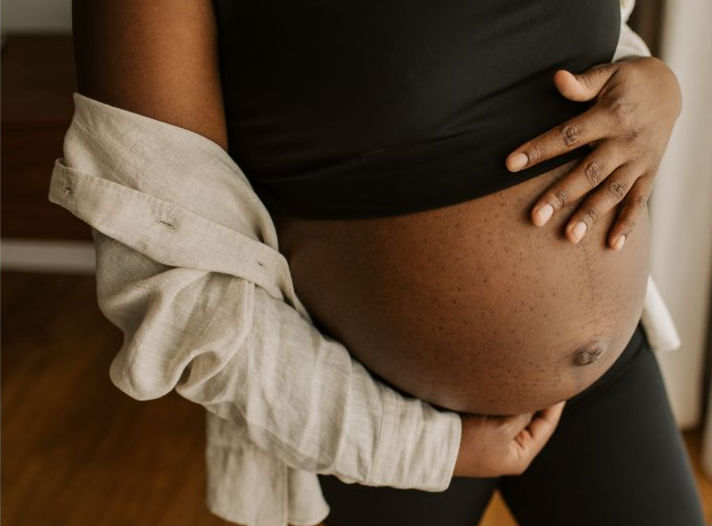Public healthcare policies for pregnant women should actively engage the concerns of those living with chronic illness. The Psoriasis Association of Kenya supports women who have to make informed decisions about both their pregnancy and their condition.

Public healthcare policies should support women who have to make decisions simultaneously about their pregnancy and their condition. Photo: Vlada Karpovich
Every woman experiences pregnancy in a unique way. For most women, the pregnancy period is a special time, enjoyable even, save for discomforts which are naturally associated with pregnancy. There is often a natural motivation to seek out basic pregnancy health information and maintain an overall healthy lifestyle in order to achieve a positive pregnancy outcome.
In Kenya, expectant women benefit from various public initiatives that are aimed at improving maternal and child health. A notable initiative, Linda Mama, affords expectant women free antenatal care, delivery by a skilled attendant, and subsidised outpatient care for a newborn for up to one year. The Linda Mama programme is acclaimed for significantly improving pregnancy experiences throughout the country, particularly in rural areas.
I recall my pregnancy journey as a psoriasis patient as deeply isolating and filled with insurmountable challenges.
The deliberate efforts at improving pregnancy experiences and outcomes for women in Kenya are not equally offered to women living with chronic illness. The public antenatal support initiatives offer general obstetric healthcare services with no provision for specialised support for chronic illnesses. As a result, expectant women with chronic illness are bereft of any support from the public healthcare system.
I recall my pregnancy journey as a psoriasis patient as deeply isolating and filled with insurmountable challenges. Naturally, for a patient with visible psoriatic flares living in a society with limited awareness of psoriatic disease, isolation and stigma are not unusual. I have progressively, and with the support of family, friends, and our patient organisation, PAK (Psoriasis Association of Kenya), learned to cope.
However, I was unprepared for the gravity of the challenges I would endure during my pregnancy. When I conceived my first child, I immediately went off medication since the medication I was on is not safe during pregnancy or breastfeeding. In fact, a woman preparing to get pregnant should be weaned off the drug six months or more prior to conception. Unfortunately, this information is not provided to women of childbearing age to enable them to make informed choices. I had to learn most of this from Google. There was a myriad of challenges that I underwent during this period:
Uncertainty as to the safety of the medication during pregnancy
Uncertainty as to the effect of the medication on the baby
How my body would react if I stopped medication/whether it would aggravate the flares
Whether I would be able to take the medicine and still breastfeed
During my antenatal clinic visits no one addressed my psoriasis; most OBGYNs only asked me what was going on with my skin—and when I mentioned it was psoriasis, the conversation ended. I suppose it was because of lack of sufficient information, or just sheer disinterest. This shows the need to have healthcare professionals and specialists work together to give women on this journey a smooth pregnancy and postpartum journey.
Anytime I needed to know anything particular about my psoriasis, I would Google the information. Luckily, we also have a great support system of patients with psoriasis in Kenya with whom we share our stories and experiences. This goes a long way in reassuring the patient that they are not alone.
I believe that there is lack of sufficient data that women can rely on to make informed decisions around childbearing, and no woman should have to make a choice between childbearing and treating their chronic conditions.
There was really no stigma from the HCPs, but there was also no information with regards to psoriasis and pregnancy. Lucky for me, the flares really subsided when I was pregnant and only came back six months postpartum.
I believe that there is a lack of sufficient data that women can rely on to make informed decisions around childbearing, and no woman should have to make a choice between childbearing and treating their chronic conditions. No woman should have to neglect themselves and their wellbeing to sacrifice and breastfeed, or go through pregnancy with the uncertainty surrounding medication and its effects on pregnancy and breastfeeding.
The clarion call is that women living with chronic conditions should be at the forefront of making decisions in relation to their conditions, and generally about their health.
The opinions expressed are those of the author and do not necessarily reflect the position of Re:solve Global Health.
Hellen Wangui Gathere is an Advocate of the High Court of Kenya and is currently undertaking her MSc in Public Health at the University of Suffolk. She is an ambassador for the International Federation of Psoriasis Associations and has been living with psoriasis for 17 years. She shares insights about psoriasis on her Instagram account @psoriasisreflections to spread awareness and fight stigma.
Comentários